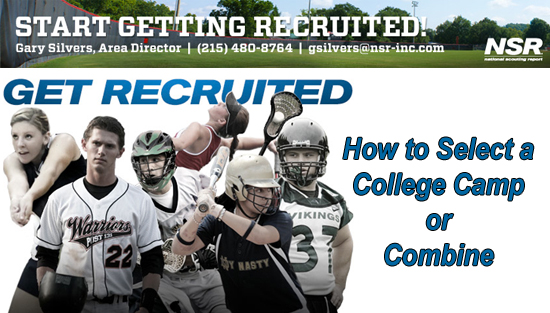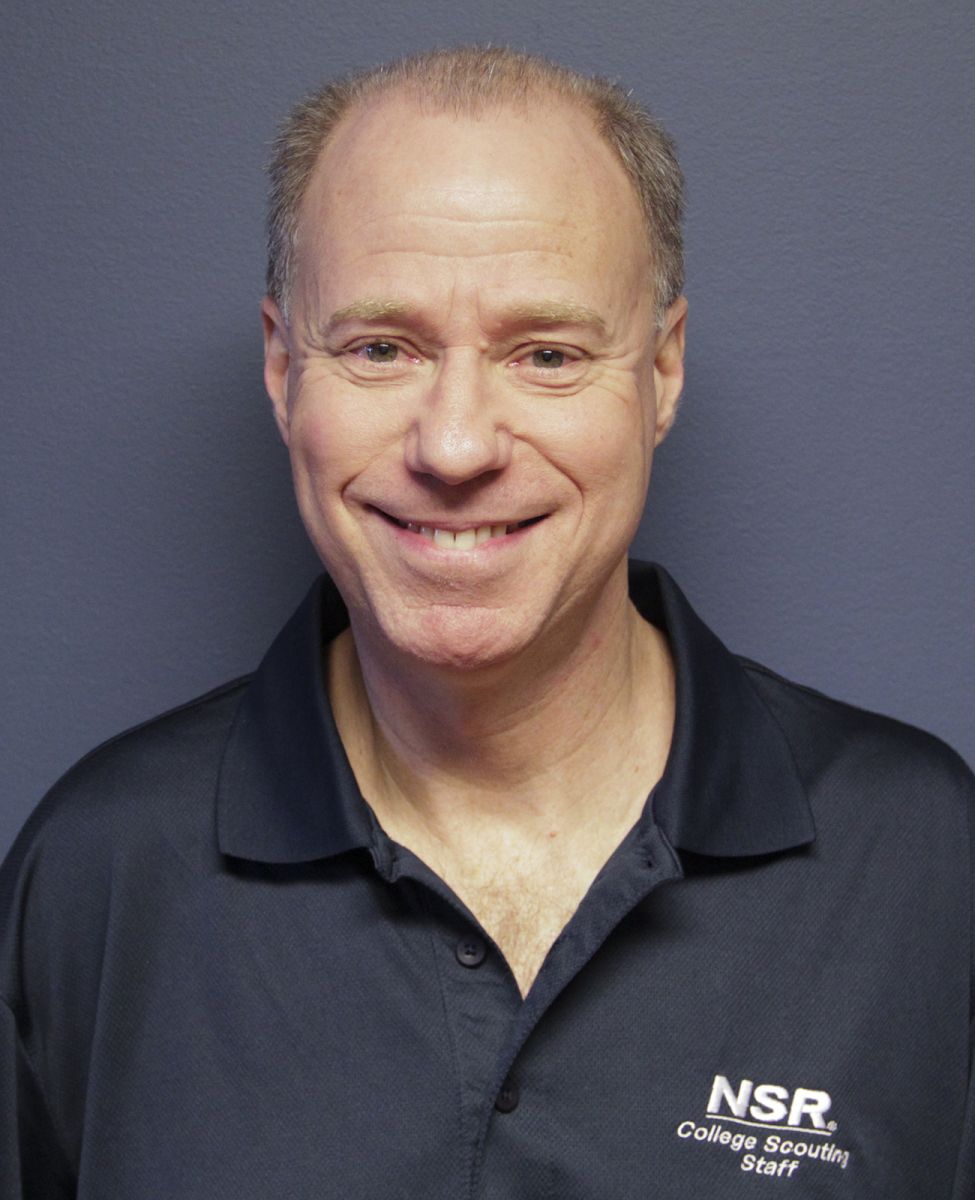- Log in to post comments
 The following article is sponsored by National Scouting Report. Visit NSR’s web site at nsr-inc.com
The following article is sponsored by National Scouting Report. Visit NSR’s web site at nsr-inc.com
RECRUITING BLOG: HOW TO SELECT A COLLEGE CAMP OR COMBINE
By Gary Silvers
 A word of advice for high school athletes who are deciding between college camps and combines this summer: Beware!
A word of advice for high school athletes who are deciding between college camps and combines this summer: Beware!
As important as those camps and combines are for college prospects, it’s even more important to choose the right one(s).
There are two major reasons to attend camps or combines: improve your skills or be evaluated by college coaches. There’s also a major difference.
Camps and combines are usually open to all incoming freshmen, sophomores, juniors and seniors. You simply fill out an application on a website, pay the (often high) registration fee and go.
However, you need to be selective.
If your goal is to improve your skills, you have far more choices. Almost any camp or combine director will welcome you with open arms.
“Camps are a way for assistant (college) coaches to make additional money,” said Larry Perrin, National Director of Football for National Scouting Report, the world’s oldest and largest high school scouting and college recruiting organization. “They will take anybody.”
 If your goal is to be evaluated by college coaches, you must look deeper.
If your goal is to be evaluated by college coaches, you must look deeper.
“If high school athletes think they can simply register on a website and get looked it, they are mistaken,” Perrin said. “Some of these camps attract 1,500 athletes.”
College prospects often receive personal camp invitations from college coaches. If the invitation says the athlete has been identified as a college prospect, the athlete should make every effort to attend the camp. On the other hand, if the invitation is nothing more than general camp information, it is basically a solicitation.
“Those invitations go out to everyone,” Perrin said. “The coaches are just looking for revenue.”
Despite their prestige, national football camps such as Under Armour, Rivals and Nike fall into that category, Perrin said.
“They are money-makers,” Perrin said. “They test, evaluate and take pictures. Athletes don’t receive one-on-one coaching and attention. All they can do is send their camp evaluations and videos to college coaches.”
If athletes are seeking true evaluations, they should attend camps on college campuses, so coaches from those schools can evaluate them. Coaches from other NCAA schools (Division I, II and III) are not permitted to attend; it is a violation of off-campus contact rules. However, NAIA coaches are permitted to attend as many camps as they want.
To give them more opportunities to evaluate talent, NCAA coaches sometimes ban together and organize satellite camps off campus. They are joint ventures between NCAA coaches and perfectly legal under NCAA rules.
Evaluation is the second of four phases in the college recruiting process. After an athlete is identified and recognized by college coaches, he or she is evaluated. If the athlete meets the school’s athletic, academic and personal criteria, he or she moves to the comparison phase and, finally, the offer phase.
Camps and combines are an excellent way to be evaluated. However, many college prospects receive numerous invitations, and most families don’t have the time or money to commit to several.
I highly recommend attending three one-day camps as opposed to one three-day camp. Athletes can receive much more exposure that way.
Ultimately, college prospects should try to attend camps at schools in which there’s a mutual interest between them and the coaches. Not only can the coaches evaluate them, they can evaluate the coaches and campus. It works both ways.
Hopefully, in the end, college prospects will find the perfect match.
National Scouting Report, the world’s oldest and largest high school scouting and college recruiting organization, evaluates high school athletes for college coaches. With its 18-phase national exposure program and thousands of college contacts, NSR boasts a 95-percent success rate helping qualified prospects earn scholarships.For a FREE consultation, call or email Area Director Gary Silvers at (215) 480-8764 or gsilvers@nsr-inc.com. For more information, visit NSR’s web site at nsr-inc.com/athletes.
